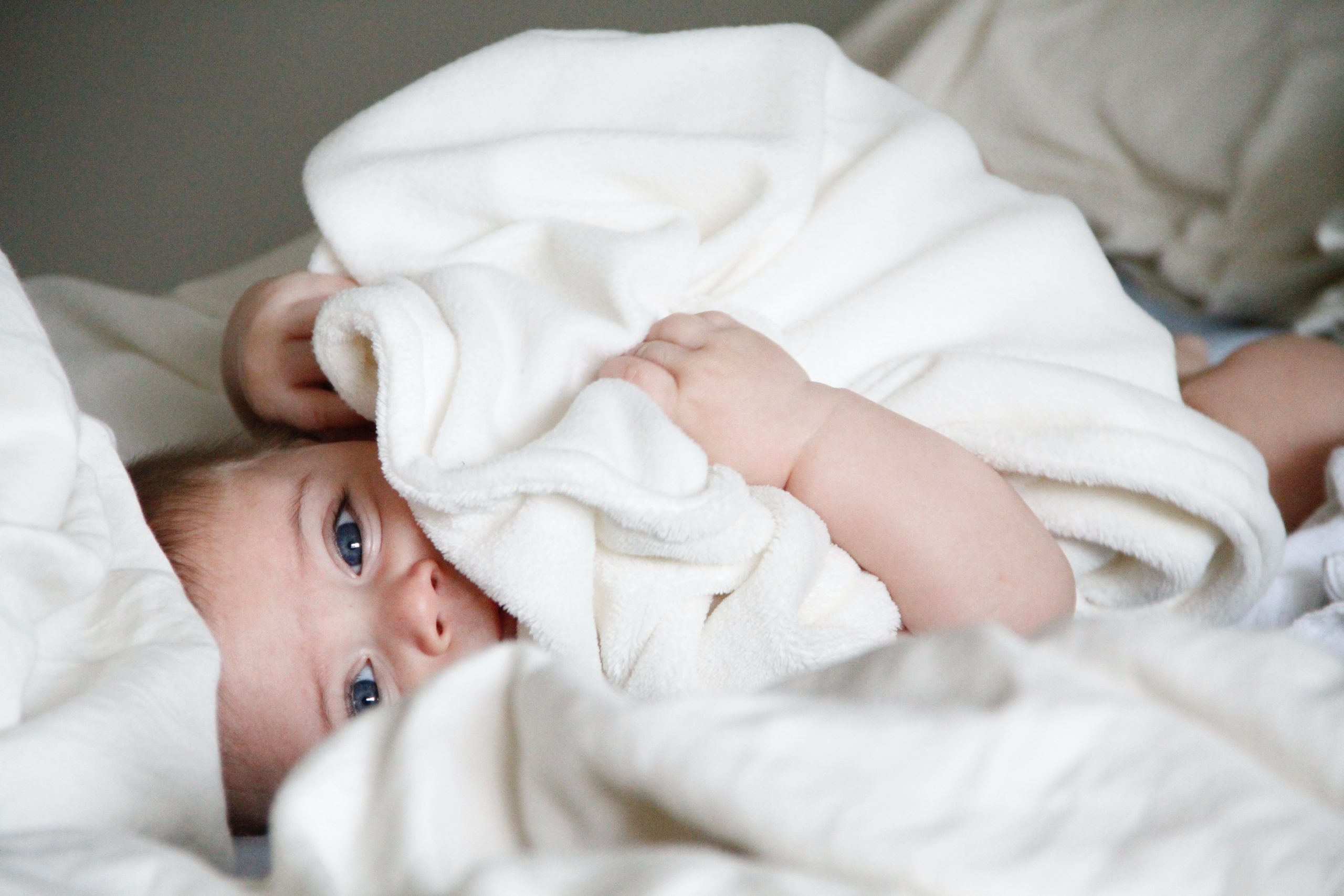April 26th, 2022
3 Sleep Myths You Can Forget About
There’s so much garbage out there, y’all! The topic of child sleep is a hot one, and our culture has strayed so far from our innate understanding of sleep that many people are unknowingly spreading false information. I don’t want to point a finger, but at the same time, we need to wake the heck up! Myths about child sleep have become common advice, and influencing the way we parent in a big way. The way we handle sleep challenges with our little ones largely sets the stage for our parenting in general. I hope by debunking some of these myths, you will realize that if they have felt conflicting for you – it was for a darn good reason!
Creating Bad Habits
I would be willing to bet big bucks that there isn’t a single parent who hasn’t been told they are “creating bad habits” for their child. I’m speaking specifically about dependency and need based habits. Nursing to sleep, bedsharing, any sleep association or connection in any form. This myth is particularly frustrating because it encourages parents to withhold what their child needs most – connection. The only reason to change a habit or association around bedtime is if it’s no longer working for you. And that change can be made lovingly within the relationship, when and only when you want it to, not because your mom, aunt or friend said so. Your child isn’t going to need to nurse to sleep when they go to college, or kindergarten for that matter!
If there’s a “habit” your child has that you are thinking about changing – it’s important to understand that it was developed for a reason. The only safe way to change it, is by addressing the root cause of why it was developed in the first place. If that’s even necessary, again the only reason to change it is because it’s no longer enjoyable for the whole family.
Self-Soothing
At the top of the myth list is the common misconception that babies need to “learn” to self-soothe. Nothing could be further from the truth. There are so many things wrong with this statement it’s hard to know where to start.
So let’s start with the simple fact that self-soothing cannot be taught, it’s a developmental milestone just like crawling or walking. Not that that keeps parents from strapping their babies in vertical contraptions and holding their hands to try to force them to walk. I’m sure some parents even credit these futile attempts when their baby finally starts walking. But the truth is that babies fall down countless times until their body and brain can build the skills needed to walk successfully. Self-soothing is no different, a child must have their emotions co-regulated by their caregivers countless times before they develop the skill to self-soothe themselves.
So what’s happening when babies are left to cry and appear to begin to self–soothe? WELL, Dr. Gordon Neufeld describes this as defended sleep. The separation the child has faced is too much to bear, and the brain swings the pendulum from fight or flight, to rest and digest (not because anything has been learned but because the child cannot handle it anymore) and the result is falling asleep. I hope it’s obvious that we don’t want our children falling asleep from sheer exhaustion,and because the brain is out of ideas on how to signal that they are in distress. We want our children to fall asleep because they are relaxed and feel connected enough to their caregivers that they can surrender to the vulnerability of sleep.
Teaching Independence
This one refers to not only independent sleep, but independence in general. Right up there with self-soothing, our culture loooves independence. I’ll keep this one short… Teaching independence isn’t a thing, not even a little bit.
Independence comes from DEEPLY rooted dependence. Think about it like the growth of a tree. For the tree to be strong and sturdy, and for it to blossom and produce fruit, it must have one heckuva root system. Your love and connection as a parent is your child’s root system. The stronger and deeper it is, the stronger the “tree” and all its “fruit” (resilience, empathy, generosity, independence, sense of self) will be.
By allowing our children to rest in their attachment and connection to us, they can develop to the height of their potential, and move away from you when they are spontaneously ready.
It’s worth the wait, I promise.
Your children cannot be too connected to you – tell anyone who says otherwise to buzz off! ?
For more attachment, and developmental-focused parenting tips, please subscribe to my newsletter, you’ll receive a free gift!

